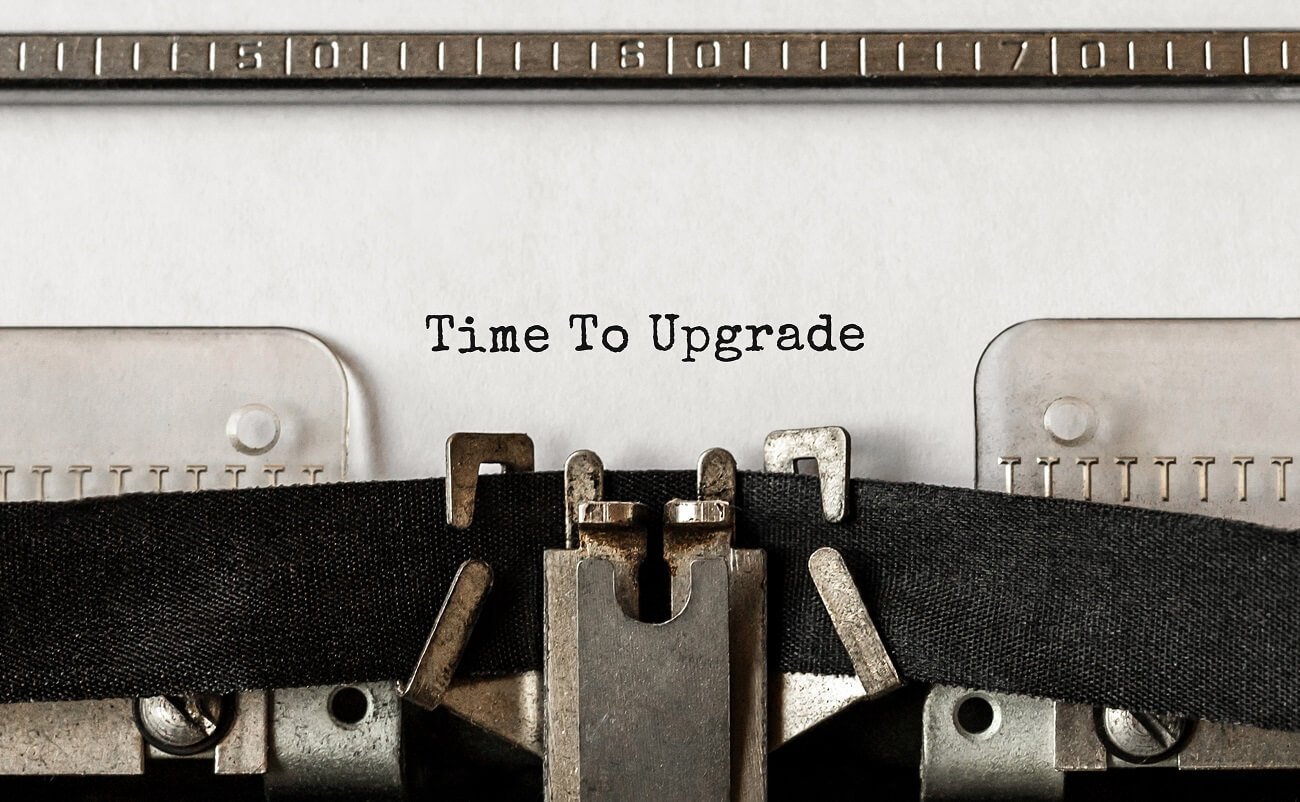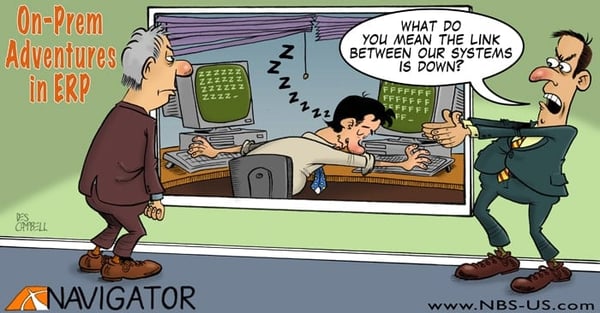
5 Questions that Help Determine if You Need a New ERP System
Upgrading your backend system is not a task to be taken lightly. That’s why many businesses continue to lean on tried and true legacy ERP systems or custom solutions. There are hassles with the current processes, but they still work.
But are these processes and systems holding back your business? When should your company upgrade to a new ERP system?
If you’re unsure if it is time for a new ERP system or if the existing setup still makes sense, here are six questions you should ask in order to make the right choice.
- Have our operations outgrown the functionality of the current system?
If real-time data isn’t accessible or generating a report takes an hour or more, there’s a problem. Additionally, if your workforce is still relying on manual entry to plug data into your system, your system can’t be configured as immediately as when updates are demanded, or if you’re having to plan based on system limitations, there’s definitely a problem.
Your system should be able to feed you real-time data on operations, financials, new opportunities and more. It also should be able to track customers, shipments, orders, vendors and other operational data easily.
If your system cannot perform these functions, and you’re having to work around these handicaps, your current system is holding you back.
- Are our business processes and workflows breaking down?
Companies such as Rothy’s, a shoe manufacturer that is taking the footwear market by storm, rely on automated processes that handle fulfillment and logistics end-to-end without manual intervention.
Even if your business is not fully automated, you need processes and workflows that work seamlessly without disruption. Are your current backend processes and workflows running smoothly, or are there order delays, overstock issues and duplicate or conflicting data?

Broken or kludgy workflows are a huge sign that your backend systems need an upgrade and it is time for a modern ERP system.
- Can our business benefit from increased automation?
All ERP systems are built for automation, but not every system is created equal or built for connecting with other systems and automating operations end-to-end.
Does your current ERP system handle data from payment systems, suppliers, online marketplaces, other internal systems and all sales channels, and enable completely automated operations?
It should. Modern cloud-based ERP solutions are built for connecting data from many sources, online and on-premise, and automating workflows so manual intervention is the exception and not the rule.
If your business is not leaning heavily on automation, or there are gaps in your organization’s automated processes, it is time to look at a new ERP solution.
- Do employees have a strong understanding of how to use the system?
Even if your system was designed and planned to precisely address your operational needs, it won’t work as intended without employee buy-in and proper use. Do employees feel comfortable using the current system, or are they going around it and introducing shadow IT and consumer cloud services to get things done?
Any system that overwhelms, confuses or discourages use is a system that needs adjustment. Just having backend systems in place is not enough—employees also must feel comfortable and empowered to use it.
Modern cloud-based ERP solutions are user-friendly and built around the user experience that employees now expect from software solutions. If your company is using an older system that confuses or scares away employees (watch for that word, “clunky”), it might be time for an ERP upgrade.
- Does the system require constant maintenance?
Older ERP solutions are delicate and demanding. Often they rely on older software and are a patchwork of integrations and code that works but just barely.
Does your current system require constant attention and maybe even a little voodoo from the IT department? Are upgrades a drain on IT resources and productivity?
If your current system is dragging down operational performance and draining resources, there’s a strong case for investing in a modern ERP solution. Most modern ERP software is hosted in the cloud, which means it is updated automatically by the vendor and can grow as your business evolves without patches, fiddly integrations and lots of custom code that must be supported by the IT department.
Is it time for your business to make an ERP switch?
Many organizations, including your competitors, are trading in their legacy software for modern technologies. For these businesses, the pros to move to a new ERP system far outweigh the cons. If you answered yes to some or all of the above questions, your business might also benefit from an ERP upgrade.
If you need help with this process, give us a call at (888) 670-5369. We’ve helped more than 500 businesses upgrade their ERP solutions for increased growth and efficiency, and we understand both the process and the challenges along the way. We have a proven track record of guiding on-time, on-budget, fixed-price implementations, and are ready to help you decide if your business should upgrade to a new ERP system.
To learn more about cloud ERP solutions, download our guide, Understanding Cloud ERP for Non-IT Executives.

